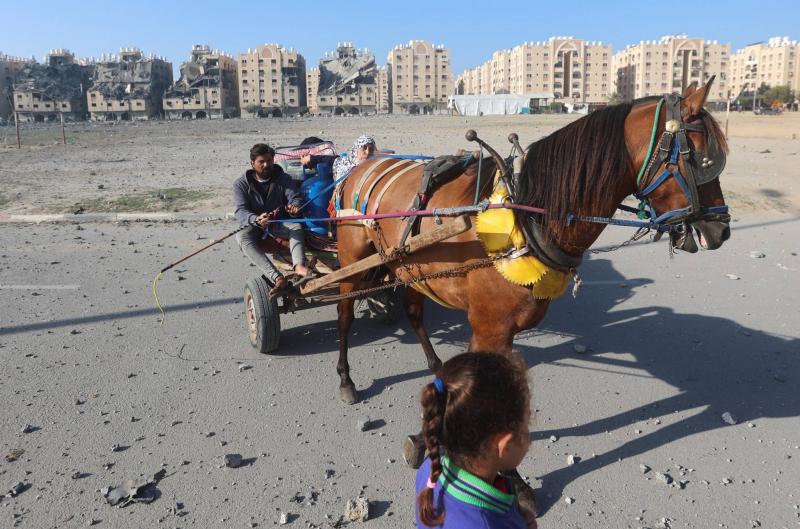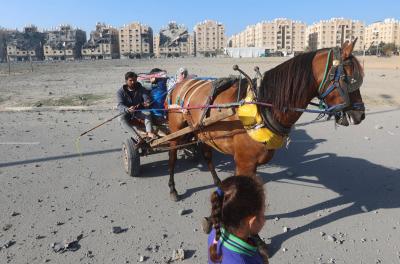Residents in Gaza have reported begging for bread and paying nearly 50 times more than usual for a can of beans, while some have resorted to slaughtering donkeys to feed their families. Aid trucks have been unable to reach much of the Palestinian territory under bombardment. Israel's offensive on Gaza aims to destroy the Palestinian Islamic resistance movement (Hamas), making it nearly impossible for aid convoys to move and reach those suffering from hunger.
The United Nations Office for the Coordination of Humanitarian Affairs stated on Thursday that limited aid distribution is taking place in the Rafah area near the Egyptian border, where nearly half of Gaza's population of 2.3 million currently resides. The statement added, "In the rest of the Gaza Strip, aid distribution has largely stopped due to the intensity of hostilities and movement restrictions along major roads."
Abdul Aziz Mohammed, a 55-year-old displaced person from Gaza City, lives with his family and three other households in a friends' home in the south, totaling around 30 people. He said, "Aid, what aid?" The director-general of the United Nations Relief and Works Agency for Palestine Refugees (UNRWA) mentioned on Thursday that hungry individuals are stopping UN aid trucks to take food and eat it immediately.
In northern Gaza, which has borne the brunt of the Israeli military assault during the initial stages of the war from October 7 to the start of the truce on November 24, fighting has resumed violently, and hardly any aid has arrived since the end of the truce in December. Journalist Youssef Fares from Jabalia in the north stated that staple goods like flour have become extremely difficult to find, leading to price increases of 50 to 100 times compared to pre-war levels.
Fares wrote in a diary post on Facebook, "I am now in Jabalia. People here are dying of hunger. This morning, I took a tour searching for a loaf of bread but found none. What remains in the streets is children's sweets and a few cans of beans that have multiplied in price fifty-fold." He added, "I saw someone slaughtering a donkey to feed hundreds of displaced family members. The price of a bag of flour, if available, is one thousand shekels."
All aid trucks enter Gaza through the Rafah crossing with Egypt but must first be inspected by Israel. Since the delivery of aid began on October 20, inspections have been carried out at the Nitzana crossing between Israel and Egypt, forcing trucks to reroute from Rafah to Nitzana and back, causing congestion. Since yesterday, Israel has begun additional inspections at another site, the Kerem Shalom crossing between Israel and Gaza, which relief officials have said would limit the bottlenecks.




